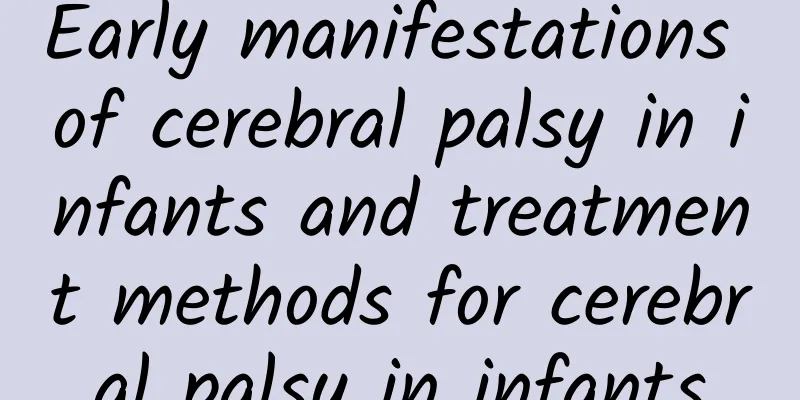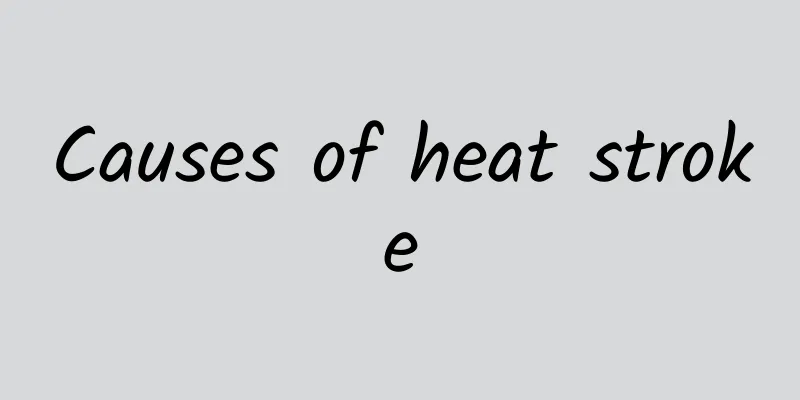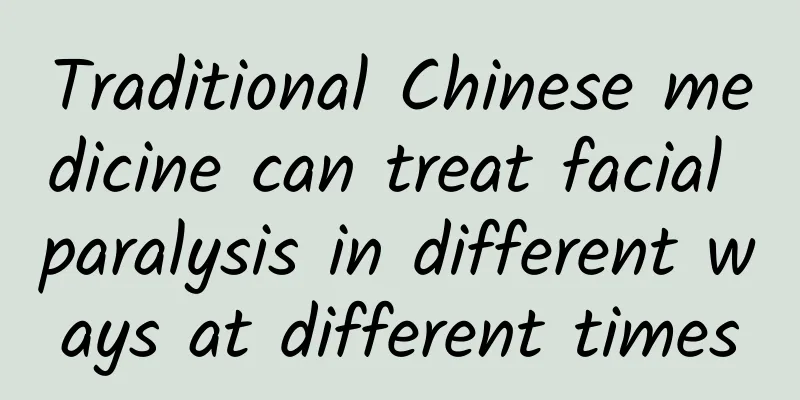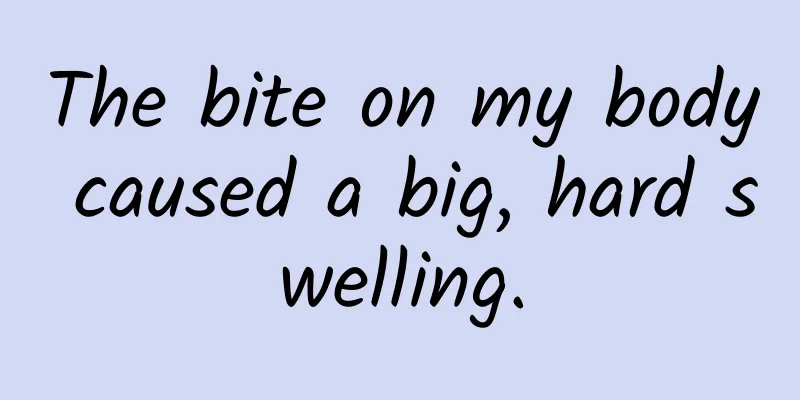Early manifestations of cerebral palsy in infants and treatment methods for cerebral palsy in infants

|
If a baby shows symptoms of cerebral palsy, people should learn more about the manifestations of cerebral palsy in the early stages. So, what are the early symptoms of cerebral palsy in infants? Early signs of cerebral palsy in infants: 1. Body weakness and decreased spontaneous movements are symptoms of hypotonia and can be seen in one month. If it persists for more than 4 months, it may be diagnosed as severe brain damage, mental retardation or muscle system disease. 2. The body becomes stiff. This is a symptom of hypertonia and can be seen in one month. If it persists for more than 4 months, it can be diagnosed as cerebral palsy. 3. Abnormal head circumference: Head circumference is an objective indicator of the morphological development of the brain. Children with brain damage often have abnormal head circumference. 4. Fixed posture: It is often caused by abnormal muscle tension due to brain damage, such as opisthotonos, frog position, inverted U-shaped posture, etc. It can be seen one month after birth. 5. Poor weight gain and inability to breastfeed. 6. Strabismus: If a 3-4 month old baby has strabismus and poor eye movement, it may indicate the presence of brain damage. Treatment of cerebral palsy in infants: 1. Psychotherapy. Children are relatively young, but they can also receive psychological treatment. Children with this disorder often have emotional disorders, abnormal behavior, and cognitive impairment. In view of the psychological barriers of children with cerebral palsy, we should respect patients in comprehensive treatment, listen carefully, understand, comfort and encourage them, and stimulate their active participation while correcting their limb dysfunction. Improving the therapeutic training effect is also a treatment method for cerebral palsy. Health education should be provided to improve the psychological state of children. We should actively communicate with them, gradually overcome their paranoia and dependence, establish independence, self-confidence, strength and upward confidence, cultivate their self-care ability, and enable them to adapt to society. 2. Physical therapy: Children with cerebral palsy receive physical therapy, such as electroacupuncture, muscle stimulation therapy device, hydrotherapy, hot and cold compresses, etc. The main purpose is to regulate function, relieve contracture, stimulate low muscle tone, promote circulation, maintain and expand joint mobility, increase muscle strength, and thus improve balance and gait. 3. Use of orthopedic devices: In the training of children with cerebral palsy, the use of braces is very important. For example, young children with syntrophic cerebral palsy have spasms in the posterior calf muscles of their lower limbs, which makes the heels unable to touch the ground, and their ankle joints are unstable and have flat feet. Foot and ankle orthopedic braces can be used. |
<<: What causes numbness in the hands and feet? These three are the most common
>>: Herpes simplex virus encephalitis can be treated with three methods
Recommend
What are the effects of turmeric?
Curcuma can effectively help improve the body'...
Nipple confusion in newborns
Breast milk is the feeding method that every woma...
Causes of failed venipuncture
Venipuncture is quite common in our daily life. T...
Who should eat Poria cocos?
Poria cocos can be a traditional Chinese medicine...
How long does it take for a new wound to heal?
If the wound is large or there is a defect, it of...
What causes hot urine?
Humans have three urgent needs, and defecation is...
Can I drink Astragalus water in summer?
You can drink Astragalus water in summer. Althoug...
How much is a pound of Dendrobium candidum?
Huoshan Dendrobium officinale is a very well-know...
What should be checked if there is blood in spit?
With the continuous improvement of living standar...
What is sepsis?
What is sepsis? We have heard of sepsis, but we m...
What are the nutritional values of Andrographis paniculata
Andrographis paniculata contains a variety of eff...
Symptoms and treatment of periodontitis
The symptoms of periodontitis are not particularl...
Treatment of snake ulcer
Herpes zoster is a serious skin disease that ofte...
Is Chinese medicine hot compress effective for weight loss? 3 key points to note
As people's living standards continue to impr...
Does a cold cause chest tightness and shortness of breath? What are some traditional Chinese medicine remedies for treating colds?
After people suffer from a cold, they often exper...









